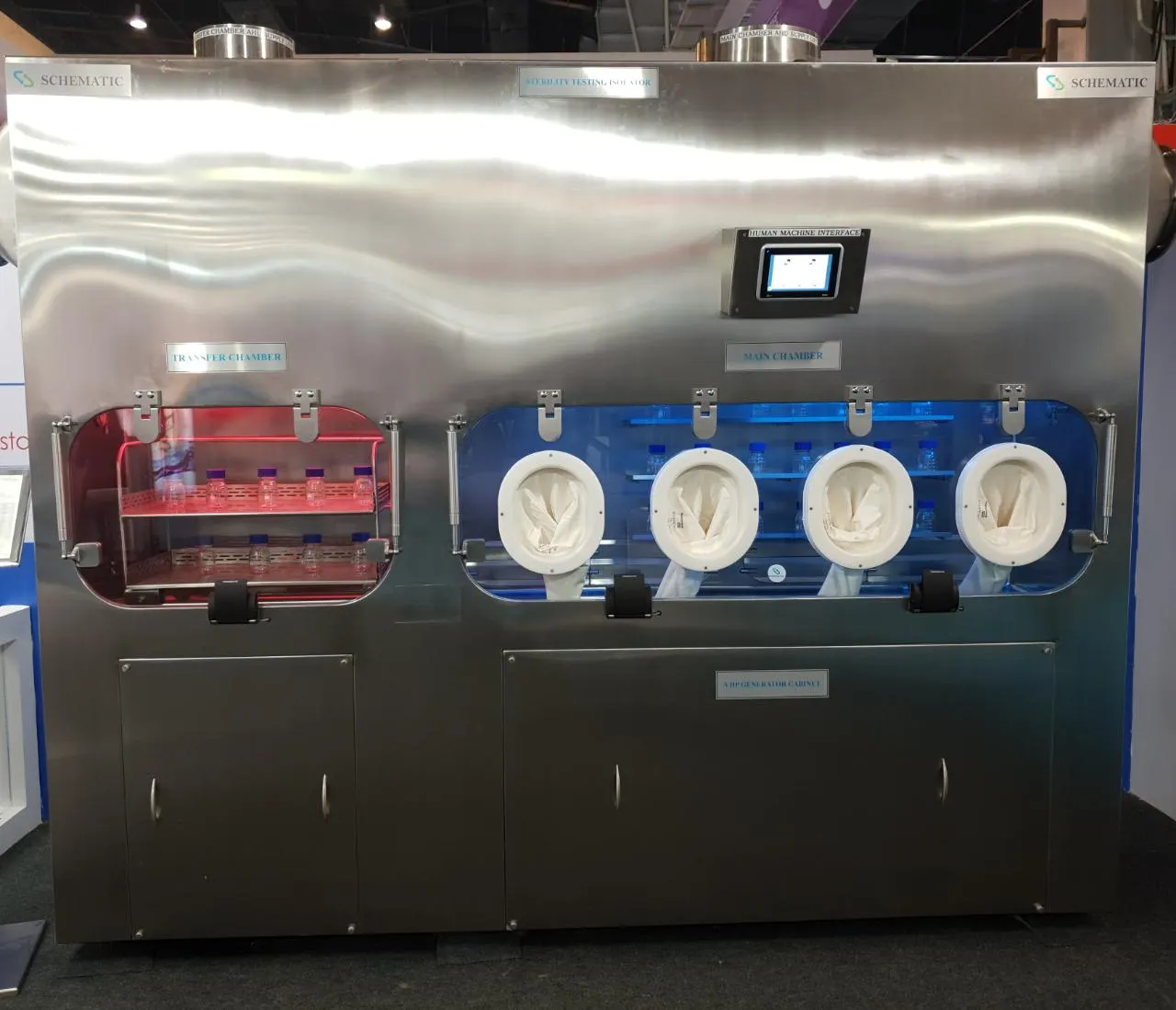

June 14, 2024
7 Tips for Choosing the Right Isolator for Your Pharma Facility
Selecting the right isolator for your pharmaceutical facility is crucial to ensure optimal performance and compliance with industry standards. Here is a comprehensive guide to help you make an informed decision:
1. Understand Your Application Needs
Identify the specific requirements of your pharmaceutical application. Consider the type of products you will be handling and the level of sterility required. Different applications may need different types of isolators, such as aseptic filling, sterility testing, or containment of hazardous materials.
Key Considerations:
- Product Type: Determine if you are dealing with sterile products, hazardous materials, or both.
- Sterility Levels: Understand the level of sterility required for your operations.
- Application Specifics: Different applications, such as aseptic filling or sterility testing, have unique requirements.
2. Consider the Size and Design
The size and design of the isolator should align with your facility’s space constraints and workflow. Ensure that the isolator can accommodate your equipment and personnel comfortably while maintaining a sterile environment. Modular designs can offer flexibility for future expansions or reconfigurations.
Key Considerations:
- Space Requirements: Ensure the isolator fits within your available space.
- Modular Designs: Opt for modular designs for flexibility.
- Ergonomics: The design should promote efficient workflow and comfort.
3. Evaluate Functionality and Features
Look for isolators with features that enhance functionality and ensure product safety. Advanced features like glove ports, airlocks, and HEPA filtration systems are essential for maintaining sterility.
Key Considerations:
- Automation: Automated systems reduce human error and enhance efficiency. Check out the Automatic Sampler System ASSA and ASSP for advanced automation solutions.
- Control Interfaces: User-friendly interfaces for monitoring and control.
- Filtration Systems: HEPA filtration systems are critical for maintaining a contaminant-free environment. See more about HEPA filtration in ANFD Discharge Isolators.
4. Compliance with Regulations
Ensure that the isolator complies with all relevant regulatory standards, including FDA, EMA, and GMP guidelines. Compliance is critical to avoid costly regulatory issues and ensure the safety and efficacy of your pharmaceutical products.
Key Considerations:
- Regulatory Standards: Verify compliance with FDA, EMA, and GMP.
- Documentation: Ensure all necessary documentation is in place for regulatory inspections.
- Quality Assurance: Schematic Engineering Industries adheres to rigorous quality standards, ensuring that our products meet all necessary regulatory requirements. For more details, visit our Quality Compliance page.
5. Quality and Reliability
Invest in isolators from reputable manufacturers known for their quality and reliability. High-quality isolators will have a longer lifespan and lower maintenance costs.
Key Considerations:
- Manufacturer’s Reputation: Choose manufacturers with a proven track record.
- Durability: High-quality materials ensure long-term reliability.
- Customer Reviews: Read reviews and ask for references to assess reliability.
6. Maintenance and Support
Consider the maintenance requirements and the level of support provided by the manufacturer. Regular maintenance is essential to keep the isolator functioning correctly. Schematic Engineering Industries offers comprehensive value-add services to ensure your isolators remain in peak condition. These services include:
- Preventive Maintenance: Scheduled maintenance to prevent unexpected breakdowns.
- Calibration Services: Regular calibration to ensure accuracy and compliance.
- Training Programs: Training for your staff to operate and maintain the isolators efficiently.
- Technical Support: Access to technical assistance for troubleshooting and problem resolution.
- Spare Parts Availability: Ensure that spare parts are readily available to minimise downtime.
For more details, you can explore our value-add services.
7. Cost Considerations
While cost should not be the only factor, it is important to consider your budget. Evaluate the total cost of ownership, including purchase price, installation, maintenance, and operational costs.
Key Considerations:
- Total Cost of Ownership: Include purchase, installation, maintenance, and operational costs.
- Long-term Savings: High-quality isolators may have higher upfront costs but offer long-term savings.
Recommended Products from Schematic Engineering Industries
Here are some recommended isolators from Schematic Engineering Industries that meet high standards of quality and functionality:
- Sterility Test Isolators: Designed for rigorous sterility testing with advanced features to ensure contamination-free operations.
- API Isolators: Ideal for handling active pharmaceutical ingredients with robust containment features.
- Formulation Isolators: Suitable for formulation processes, offering flexibility and modularity for various pharmaceutical applications.
- Injectable Isolators: Ensures sterility during the production of injectable pharmaceuticals with integrated features for enhanced safety.
Contact Us for More Information
For more details on how to choose the right isolator and to explore the full range of products, please contact us. Our experts are ready to assist you in finding the best solution for your pharmaceutical facility, ensuring compliance, efficiency, and high standards of sterility.
By considering these factors, you can choose the right isolator for your pharmaceutical facility, ensuring efficient operations and high standards of sterility. This investment will not only safeguard the quality of your products but also streamline your operations and compliance with industry regulations.












